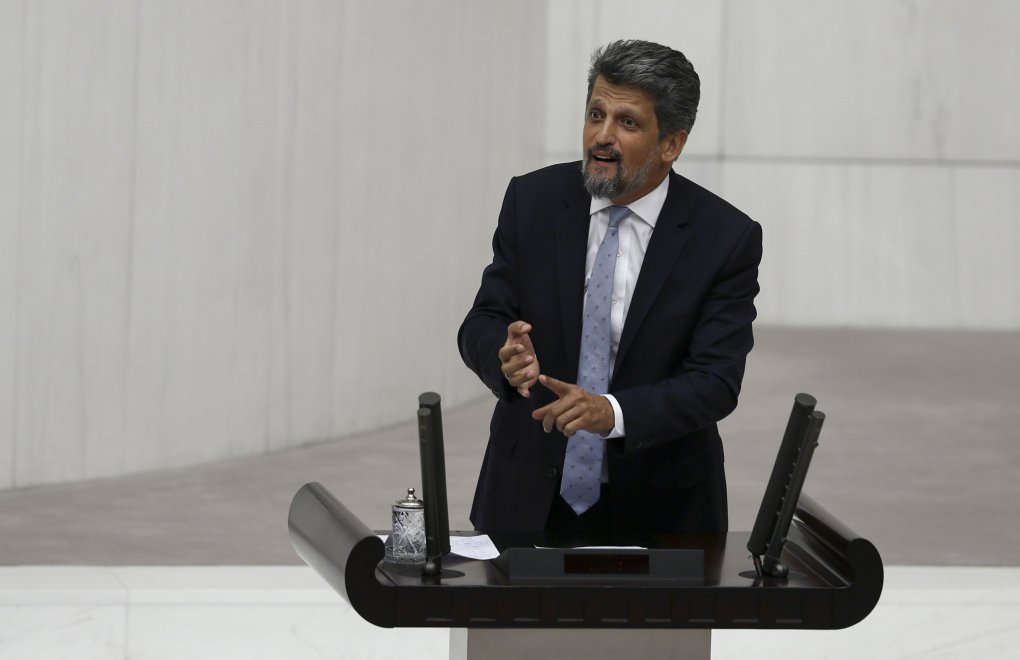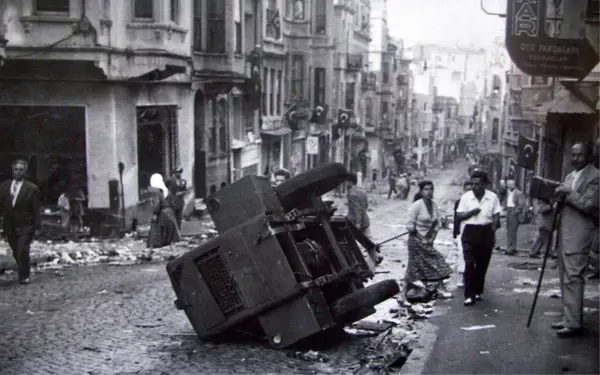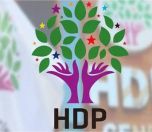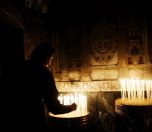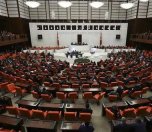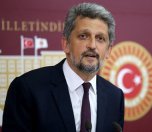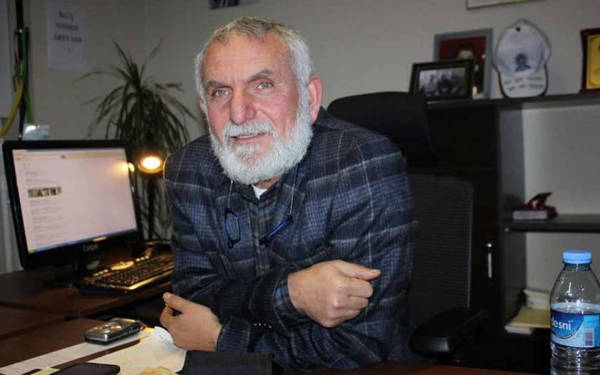Click to read the article in Turkish
The parliamentary inquiry into İstanbul Pogrom submitted by Peoples' Democratic Party (HDP) Diyarbakır MP Garo Paylan has been rejected on the ground of "not being in accordance with the Internal Regulations of the Grand National Assembly of Turkey (TBMM)."
Paylan submitted the inquiry on September 5, requesting the identification of public officials and civil perpetrators who planned and organized the pogrom against Greeks, Armenians and Jews in İstanbul on September 6-7, 1955.
CLICK - MP Paylan Proposes Parliamentary Inquiry into İstanbul Pogrom to 'Confront the Past'
The official letter of rejection, signed by TBMM Speaker Mustafa Şentop, said that the motion for an inquiry was against Article 67 of TBMM Internal Regulations.
TBMM Internal Regulations Article 67If there are rude and hurtful words in the letters and motions sent to the Speaker's Office, the Speaker returns the letter or motion to its owner. |
The official letter sent to Paylan saids, "It is seen that you were notified by the Speaker's Office letter that the motion previously submitted by yourself could be put into process if it is edited in accordance with the provisions of the Internal Regulations; however, the motion is repeated without the issues that constitute the subject matter of the Speaker's Office letter being brought in compliance with the provisions of the Internal Regulations.
The letter also specified which sentences and paragraphs must be edited said that the motion could be processed if the changes are made.
Paylan: The door do confront the past is closed
Speaking to bianet about the rejection of the motion, Paylan made the following remarks:
"While we could discuss the Armenian Genocide, the pogrom of September 6-7, many massacres, crimes against humanity until recently, we are not wanted to talk about these today. They reject definitions that were normalized until recently.
"In this regard, censorship is in place at the parliament. The Speaker's Office wants to decide which words we will use. What will say other than the Pogrom of September 6-7? Let us explore, see what was experienced, and then give it a name as the parliament. As long as we don't speak, these crimes repeat and will continue to repeat.
"My motions have been rejected for three years"
"Since I have become a member of parliament, I submit motions every year on September 6-7. Apart from my first year as a member of the parliament, 2015, all my motions were returned. For three years, my motions have been returned on the ground that I must edit my statements.
"Similarly, my motions that include the expression 'the Armenian Genocide' are returned."
"Suffering of some social groups is ignored"
"They define our words in the motion as 'rude and hurtful remarks'. I don't say these rude and hurtful words to the Speaker, I don't say these to MPs. I tell what I experienced, a calamity that I experienced. I tell great calamities and want these to be spoken about.
"In fact, the Speaker is the one who says rude and hurtful words. Because certain groups in society experienced great trauma and pain. When you ignore this, you ignore that group, being involved in rude and hurtful words and actions."
Paylan's petition for inquiry* "The pogrom of September 6-7, 1955, is one of the gravest events in the history of the Republic of Turkey that has not yet been confronted. According to official data, only 73 churches in İstanbul, 8 ayazmas, 2 monasteries, 5,538 houses 3,584 of which belonged to Greeks, and businesses were burned down and looted. * Also according to official records, 60 women were raped and many were killed. Following the impunity of the pogrom, tens of thousands of Greek, Armenian, Jewish and Syriac citizens were forced to leave the country against oppression and the threat of life security. * The perpetrators of this pogrom did not receive punishment like many negative events in the history of the Republic, on the contrary, the people involved or caused the events were promoted. * For example, Sabri Yirmibeşoğlu, who was in charge of the Mobilization Audit Committee during the Pogrom, said, "September 6-7 is a Special Warfare Task. It was a magnificent organization and it achieved its purpose," though he has risen gradually in the bureaucracy over the years, reaching as far as the General Secretariat of the National Security Council between 1988-1990. In fact, Oktay Engin, the perpetrator of the bomb that ignited the wick of the pogrom and dropped on Atatürk's home in Thessaloniki, continued his career in 1992-1993 as the governor of Nevşehir. * It is useful to look at the above-mentioned words of Sabri Yirmibeşoğlu in order to understand why the pogrom, like other crimes in the history of Turkey, remains a crime that has not been confronted and its perpetrators punished. In this context, it can be seen how the state is involved in certain crimes and how it surrounds the perpetrators with an armor of impunity. * Although 64 years have passed since this great crime in our country, the parliament has not taken any steps to uncover the perpetrators of the pogrom. * The discovery of the perpetrators of the pogrom, the determination of the losses of life and property, the compensation of the financial and moral losses of the victims and institutions, and the finding of justice, albeit late, will be an important step that the Parliament will take in the name of confronting the past. Therefore, we demand that a parliamentary inquiry be opened. |
(HA/VK)





